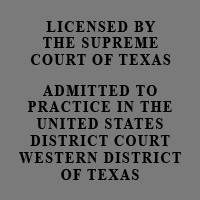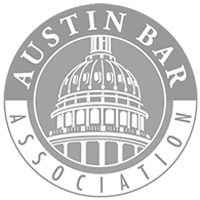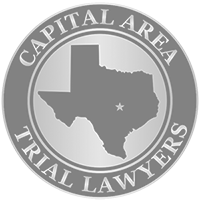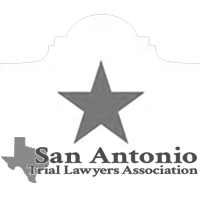Texas Health Care Fraud Lawyer and Federal Health Care Fraud Lawyer Handles Health Care Fraud Whistleblower Lawsuits by Texas Health Care Fraud Lawyer and Federal Health Care Fraud Lawyer Jason S. Coomer
When corrupt Health Care Providers including hospitals, Hospice providers and nursing homes commit health care fraud, it is up to whistleblowers and American Heroes to file Qui Tam Claims and Whistleblower lawsuits to recover the millions of dollars the health care provider has stolen from Medicare, the United States or State Governments. More often than not Health Care Administrators, Providers, and Doctors, become aware when corrupt individuals are stealing from the system.
If you are aware of a large health care company that is defrauding Medicare, the United States Government or a State Government out of millions or billions of dollars, contact Qui Tam Hospice and Health Care Fraud Lawyer, Jason S. Coomer, via e-mail or via our online submission form for a free review of a potential qui tam hospice or health care fraud claim .
Health Care Fraud Lawsuits Can Include Both Federal Health Care Fraud Whistleblower Lawsuits and State Health Care Fraud Whistleblower Lawsuits (Qui Tam Claims)
Law enforcement authorities estimate that health-care fraud costs taxpayers between $60 billion and $100 billion each year. Through Health Care and Hospice Qui Tam claims and Health Care & Hospice Fraud Lawsuits billions of dollars have been recovered from individuals and organizations that have committed health care fraud on the United States Government and State Governments.
Health care fraud costs United States Tax Payers large amounts of money through Medicare, Medicaid, and other government health care programs. A critical aspect of the Health Care Fraud problem is that Medicare, the health program for the elderly and the disabled, automatically pays the vast majority of the bills it receives from companies that possess federally issued supplier numbers. Computer and audit systems now in place to detect problems generally focus on over billing and unorthodox medical treatment rather than fraud.
HOSPICE FRAUD NETS MULTIMILLION DOLLAR RECOVERY
"SouthernCare Inc. and its shareholders have agreed to pay the United States a total of $24.7 million to settle allegations that the Birmingham, Ala.-based company submitted false claims to the government for patients treated at its hospice facilities, the Justice Department announced today. SouthernCare operates approximately 99 locations that provide hospice services in 15 states."
“The Medicare hospice benefit is intended to provide compassionate end of life care to terminally ill patients,” said Gregory G. Katsas, Assistant Attorney General of the Civil Division. “This settlement sends a clear message that the Department of Justice will not allow health care providers to take advantage of beneficiaries in their attempts to game the reimbursement system.”
This settlement results from two qui tam suits filed by two former SouthernCare employees on behalf of the United States. The False Claims Act authorizes private parties to file suit against those who defraud the United States and to receive a share of any recovery. The United States will pay $4.9 million to the individuals who filed the actions against SouthernCare.
“Our investigation showed a pattern and practice to falsely admit patients to hospice care who did not qualify and to bill Medicare for that care. This resulted in taxpayers bearing inappropriate costs. This settlement evidences the Department of Justice’s efforts to both protect the public monies and safeguard Medicare beneficiaries,” said Alice H. Martin, U.S. Attorney for the Northern District of Alabama.
http://birmingham.fbi.gov/dojpressrel/pressrel09/bh011509.htm
HEALTH CARE FRAUD CASE NETS RECOVERY OF $1.7 BILLION
HCA Inc. (formerly known as Columbia/HCA and HCA - The Healthcare Company) and HCA subsidiaries agreed to pay the United States over $1.7 Billion including $631 million in 2003 for civil penalties and damages arising from false claims the government alleged it submitted to Medicare and other federal health programs. In 2000, HCA subsidiaries pled guilty to substantial criminal conduct and paid more than $840 million in criminal fines, civil restitution and penalties. HCA will paid an additional $250 million to resolve overpayment claims arising from certain of its cost reporting practices. In total, the government will have recovered $1.7 billion from HCA.
This Qui Tam settlement resolved fraud allegations against HCA and HCA hospitals in nine False Claims Act qui tam or whistleblower lawsuits pending in federal court in the District of Columbia. Under the federal False Claims Act, private individuals may file suit on behalf of the United States and, if the case is successful, may recover a share of the proceeds for their efforts. Under the HCA settlement, the whistleblowers will receive a combined share of $151,591,500.00.
http://www.usdoj.gov/opa/pr/2003/June/03_civ_386.htm
Medical Billing and Expense Fraud Law Suits (Qui Tam Claims)
In 1986 as a result of increased government contractor fraud, Congress amended the False Claims Act in order to make it easier for whistleblowers to file claims against fraudulent corporations and individuals.
The 1986 Amendment defines a "claim" as:
"...any request or demand which is made to a contractor, grantee, or other recipient if the United States Government provides any portion of the money or property which is requested or demanded, or if the government will reimburse such contractor, grantee, or other recipient for any portion of the money or property which is requested or demanded."
The whistleblower's share of recovery is a maximum of 30 percent and the government's prior knowledge of fraud now does not necessarily bar a whistleblower from collecting lost revenue. If the government took over the lawsuit, the relator can "continue as a party to the action." The defendant is also required to pay for the relator's attorney fees. The whistleblower is also protected from retaliatory actions by his or her employer. As a result or the amendment, qui tam lawsuits increased dramatically. Though the amendment was first made fore corrupt defense contractors, the amendment has uncovered billions of dollars in health care fraud.
Anyone who defrauds the government out of revenue can be held accountable under the False Claims Act. Common defendants include defense contractors, health care providers, other government contractors & subcontractors, state and local government agencies, and private universities. Whistleblowers often include current and former employees of the defrauding company, competitors of government contractors and public interest groups.
The False Claims Act was enacted to encourage private citizens to assist the government in the fight against fraud. Often the whistleblower faces an uphill battle as large, powerful corporations or individuals are usually named as defendants. An experienced attorney in qui tam claims may help you gain a percentage of stolen government funds.
Qui tam actions typically revolve around false claims that are either directly or indirectly presented to the Government for "payment or approval." These false claims can be generated through the submission of false bills, records, statements or other representations made to the Government.
There are several types of Qui Tam claims covered under the False Claims Act:
-
Mischarging or overcharging for goods or services.
-
Improper price data and the request for payment for services never provided.
-
Holding government property for fraudulent purposes.
-
Avoiding payment of a debt to the government because of illegal reasons.
-
Knowingly providing the government with defective or dangerous products that were falsely certified.
-
Falsely certifying information for the entitlement of benefits.
-
Having any false claim paid by the government.
The mischarging case is the most common type of qui tam healthcare fraud case that is filed. Mischarging cases generally involve filing false claims for goods or services that were not provided or delivered. A common mischarging scenario is where a health care provider submits charges for patients that never required these procedures or if the patient did not qualify for certain medical services such as Hospice. Other common Qui Tam Healthcare Fraud Mischarging Schemes are claims made to the Government for medical services not rendered to a particular patient or for services performed by an attending physician when the service was actually performed by a nurse or other provider that should have been billed at a lower rate.
Originally, healthcare fraud was defined as deceptive means used by an organization to profit from government healthcare agreements. That definition has more recently been extended to include not only deception, but also unreasonable ignorance of the rules.
Healthcare fraud charges stem from the qui tam provision of the 1986 Federal False Claims Act, which allows citizens to file a suit on behalf of the federal government against anyone who has participated in government fraud. Many believe that one of the government’s primary motivations for passing this act was to uncover violations of healthcare contracts; indeed, healthcare fraud has accounted for more than half of all qui tam damages recovered since the act was passed.
Hospice Fraud and Health Care Fraud Lawyers (Qui Tam Claims)
If you are aware of a Health Care Provider, Hospice Provider, Defense Contractor, highway contractor, large health care company, or other large contractor or subcontractor that is defrauding the United States Government out of millions or billions of dollars, contact Texas Hospice Health Care Fraud Qui Tam Lawyer Jason Coomer. As a Texas government fraud Lawyer, he works with other powerful qui tam lawyers that handle large governmental fraud cases. He works with San Antonio Qui Tam Lawyers, Dallas Hospice Fraud Lawyers, Houston Health Care Fraud Lawyers, and other Texas Health Care and Hospice Fraud Qui Tam Lawyers as well as with Qui Tam Lawyers throughout the nation to blow the whistle on fraud that hurts the United States.
Feel Free to Contact Us with any Questions
Associations




